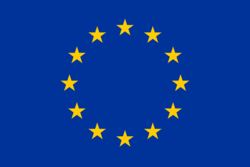 As the European Union moves towards building a common military, the US has reportedly threatened to leave its allies in a lurch if Brussels continues to insist on cutting US weapons makers out of the bargain.
As the European Union moves towards building a common military, the US has reportedly threatened to leave its allies in a lurch if Brussels continues to insist on cutting US weapons makers out of the bargain. RNA - If the EU does not amend the proposed rules of the European Defense Fund (EDF) and Permanent Structured Cooperation (PESCO) – an initiative to create a future EU military – Brussels may have to make do without US weapons or NATO aid, a senior State Department official said in a meeting last month, according to the Spanish daily El Pais.
Citing transcripts from a May meeting in Washington, El Pais reported that Deputy Assistant Secretary of State for European and Eurasian Affairs Michael Murphy told a group of European security ambassadors that the proposed rules are too restrictive for US manufacturers, and needed to be changed when it comes to intellectual property, technology transfer and export controls.
Murphy is said to have threatened the Europeans with the specter of Russia, a country that “has a physical border with the EU and constitutes a direct physical threat to its member states” in his words.
He also added that any security crisis affecting the EU will “inevitably” require a response from NATO – including non-EU members US, Canada, Norway and presumably the UK, once Brexit takes effect – and the alliance may not be able to help if NATO and EU armies become “less interoperable and cannot fight together” as a result of new EU rules.
Earlier last month, the Pentagon even sent a formal letter protesting the new regulations to Federica Mogherini, EU High Representative for Foreign Policy.
While interoperability concerns sound consistent with US objections to Turkey’s planned acquisition of Russian S-400 air defense systems – currently a major point of contention between Washington and Ankara – Murphy seemed more worried about subsidies to European weapons manufacturers, fearing a repeat of the “Airbus effect” – referring to the EU conglomerate that has seriously cut into Boeing’s airliner dominance over the past 50 years.
"At least some of you are developing an industrial policy under the guise of a security policy," he reportedly said at the meeting, adding that set-asides for European manufacturers envisioned by the proposed rules are “like a snowball” that gets bigger as it rolls downhill.
However, El Pais pointed out that US military exports in 2016 – the last year for which numbers were available – amounted to €135 billion, compared to a paltry €16 billion from the EU, wondering why Washington was so concerned about the potential competition.
PESCO was proposed in 2009, and eventually agreed to by 25 of the bloc’s 28 member states, with Denmark, Malta and the UK opting out. Despite assurances from EU leaders that it would complement rather than replace NATO, the initiative has been criticized as redundant and creating potential to bypass the US-dominated military alliance.
847/940